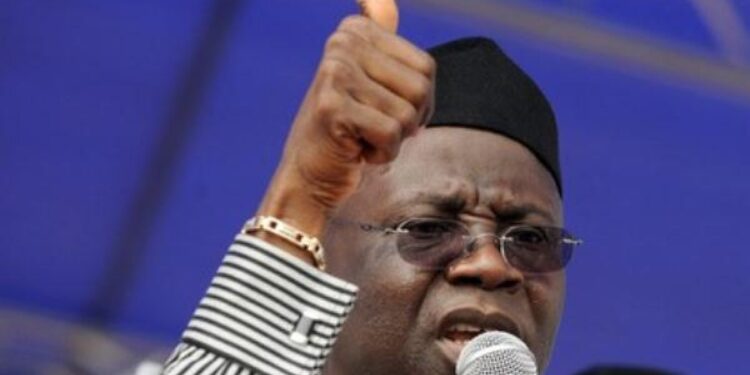Renowned clergyman Pastor Tunde Bakare has cautioned against using the suspended Governor of the Central Bank of Nigeria (CBN), Godwin Emefiele, as a scapegoat by the Federal Government, despite potential misjudgments in managing the country’s monetary policy. Bakare’s remarks came as part of a broader State of the Nation broadcast where he delved into recent developments within the nation.
During his address, Pastor Bakare emphasized that while accountability is paramount, the circumstances surrounding Emefiele’s actions should be considered within the framework of the CBN Act of 2007. This Act potentially indicates that the former CBN governor might have acted under presidential authorization.
Pastor Bakare firmly stated, “If Emefiele is found liable for any crime, by all means, he should be prosecuted. However, considering the dynamics of the pre-election environment and the then-candidate Bola Tinubu’s public allegation that the naira redesign policy was targeted at him, the optics of the president targeting Emefiele for prosecution after winning the election and being sworn in as the president could be interpreted as a form of vendetta far beneath such a distinguished office.”
Pastor Bakare also directed criticism towards the Department of State Services (DSS) for its handling of Emefiele’s arrest and subsequent detention. He expressed concerns about professionalism and adherence to the rule of law in their actions. He indicated that the DSS’s involvement in Emefiele’s case had raised apprehensions about the broader motivation behind the government’s anticorruption efforts.
The contentious situation has its roots in the arrest of Emefiele by the DSS shortly after his suspension by President Bola Tinubu on June 10. Emefiele now faces Federal Government prosecution on two charges of illegal possession of firearms and ammunition.
In response to his arrest, Emefiele filed an appeal seeking to prevent further prosecution or remand in connection to the illegal possession charges. The case has captured significant attention and is expected to resume at the Federal High Court in Lagos on Tuesday, August 15.








